Editor’s note: This article also contains affiliate links, so we earn a small commission if you choose to buy ‒ at no extra cost to you. Happy shopping!
Your baby’s first tooth is definitely a milestone worth celebrating.
And let’s be honest, that toothy smile is the cutest thing!
But after all the excitement simmers down, you’re probably wondering how to clean those little chompers.
When do you start brushing — and how?
What is the best baby toothbrush, and how often do you use it?
Stick around.
We’ve got all you need to know about the baby toothbrush.
In this article: 📝
- Do babies need toothbrushes?
- What happens if I don’t brush my baby’s teeth?
- When should a baby start using a toothbrush?
- What type of toothbrush is best for babies?
- Baby toothbrush options
- Are finger toothbrushes good for babies?
- How to brush babies’ teeth
- How often do you brush baby’s teeth?
- Baby toothbrush: the final word
Do babies need toothbrushes?
The short answer is yes.
As soon as babies have teeth, it’s important to start brushing them.
And while you’ll only whip out the baby brush when those tiny pearly whites appear, many pediatric dentists recommend starting an oral healthcare routine before they even have teeth.
The American Dental Association says to clean your baby’s gums regularly, beginning in the first days after birth.
(To do this, gently wipe their gums with a clean, moist cloth or gauze pad.
Or by using these special disposable oral cleaners.
This gum-wiping will help your baby get used to regular mouth cleanings.
What happens if I don’t brush my baby’s teeth?
It’s a question many parents wonder (sometimes amid a teeth-brushing battle):
Why do we bother?
After all, the baby teeth are just going to fall out anyway.
So here’s the scoop.
Not brushing baby teeth can lead to tooth decay, speeding up the formation of cavities, causing pain, and even leading to baby teeth being removed early.
This can cause problems later with crookedness and the spacing of permanent teeth.
When should a baby start using a toothbrush?
As soon as they have teeth.
For most, this will be at about six months, but it can happen even earlier.
And as we’ve discussed, oral care should begin even earlier, soon after birth.
When it’s time to get brushing, do so with a special baby toothbrush and toothpaste.
For babies and children under three years old, use a rice grain-sized amount of fluoride toothpaste.
For kids over three, use a pea-sized amount of toothpaste.
And encourage them to spit the toothpaste out.
What type of toothbrush is best for babies?
When picking the best baby toothbrush, choose one that’s age-appropriate for your little one.
(You’ll see this info on the product’s package.)
Make sure you pick one with soft bristles so you can brush gently.
Other than that, the choice is yours.
Baby toothbrush options
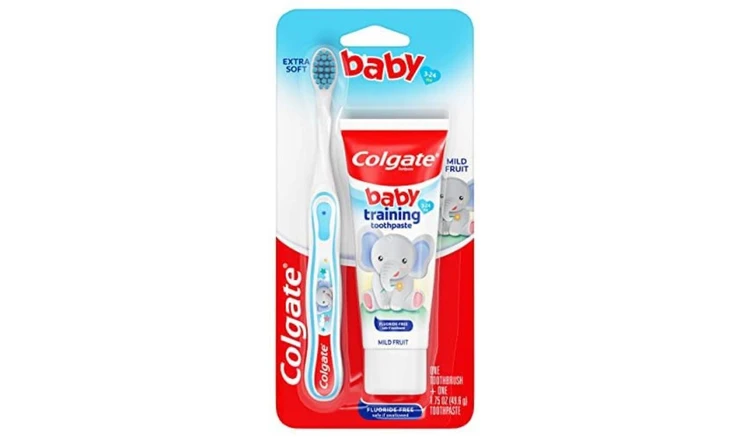
1. A baby soft toothbrush
This is basically a scaled-down adult toothbrush with soft bristles.
Consider this their starter kit as they practice their tooth-brushing skills and start to get into their oral hygiene routine.
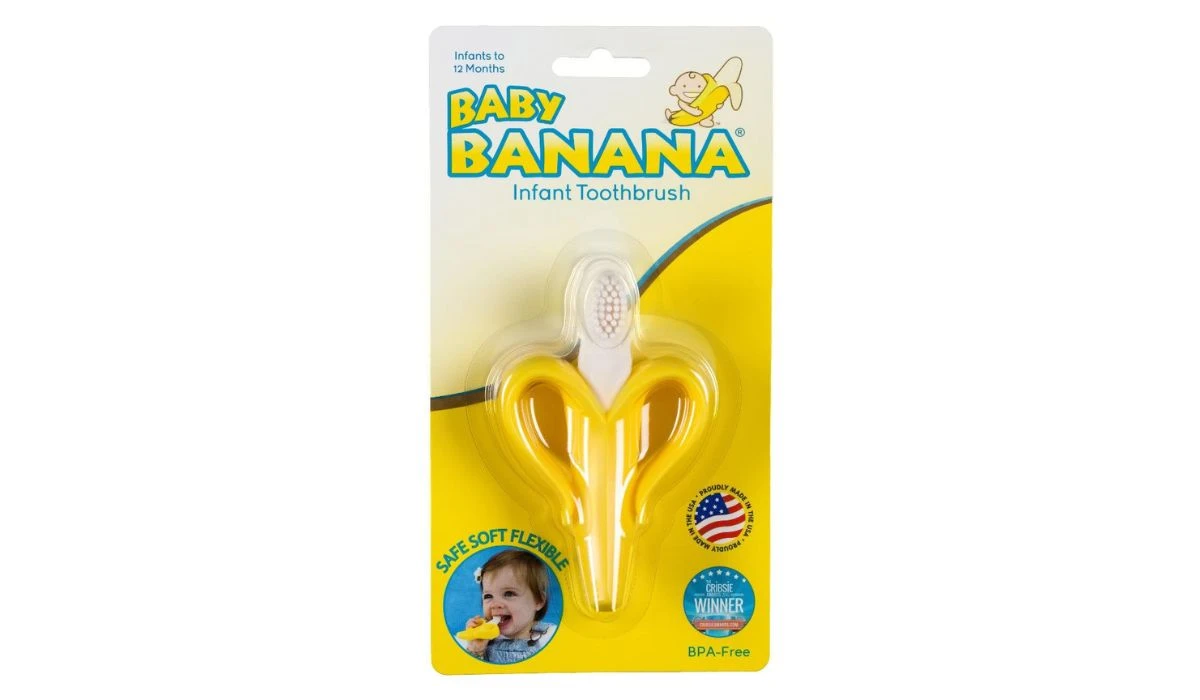
2. The baby banana toothbrush
What about this cute option?
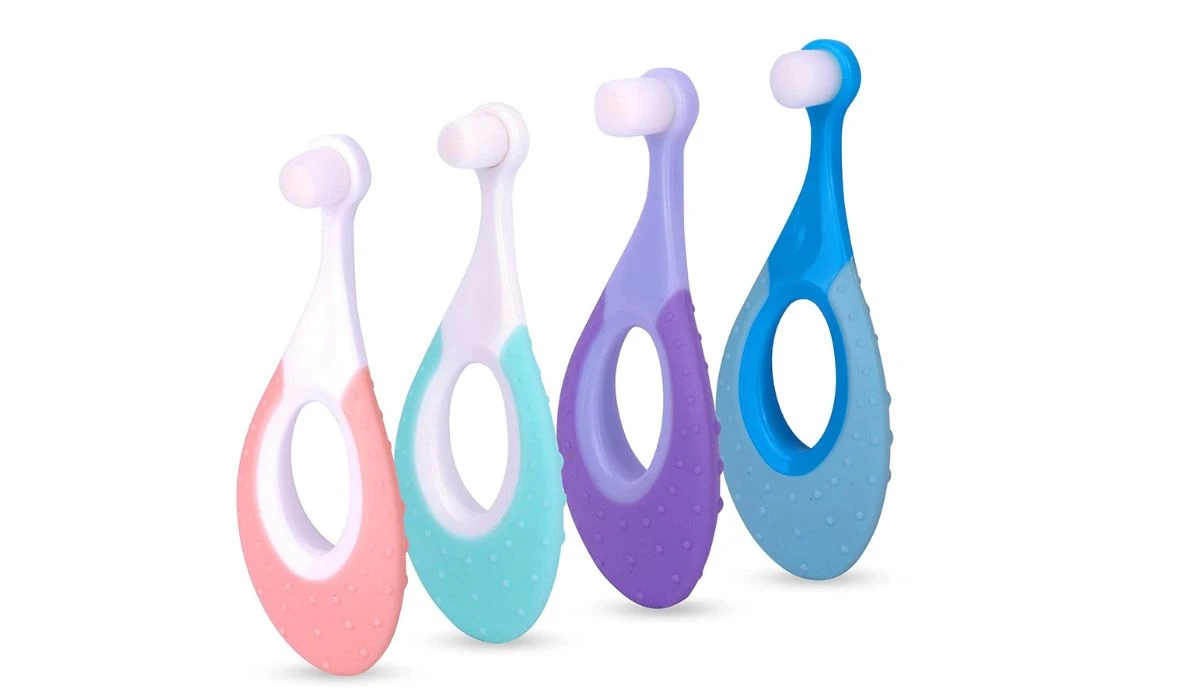
3. Wide-handled toothbrush
Wide-handled toothbrushes like the ones made by Ecovana and Jordan, are really easy for babies and toddlers to hold.
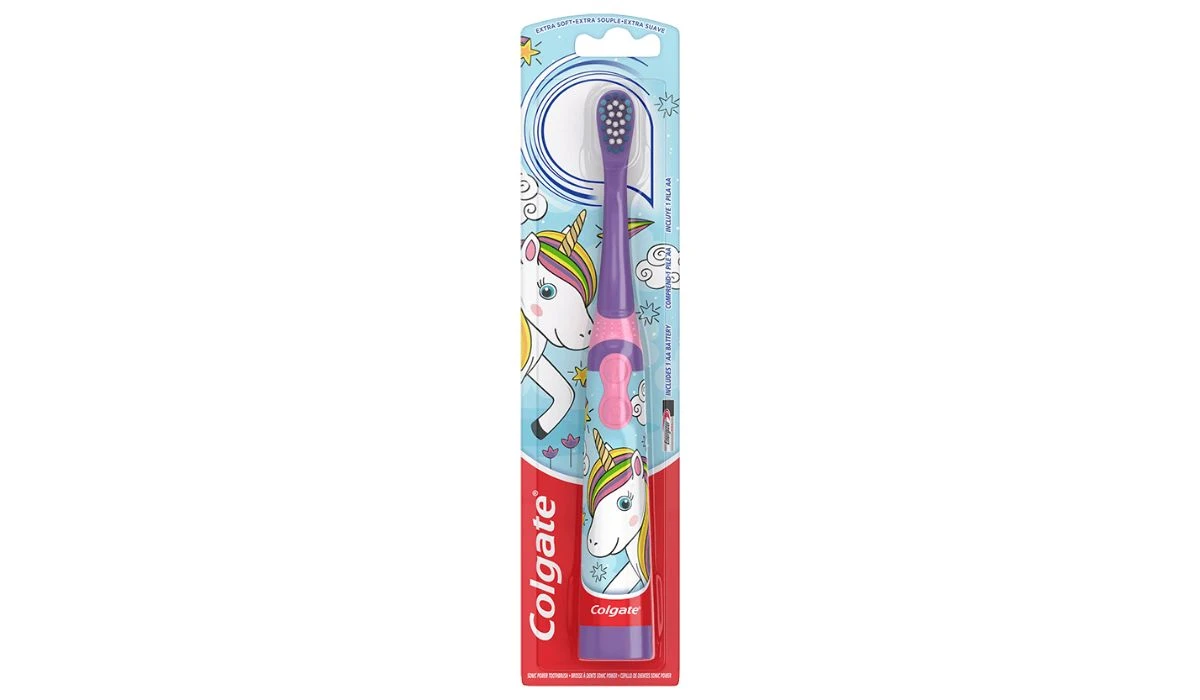
4. Teether toothbrushes
Some toothbrushes have silicone bristles and double up as teethers.
Teether toothbrushes are a good way to get teething babies used to the idea of an oral hygiene routine before they even have teeth.
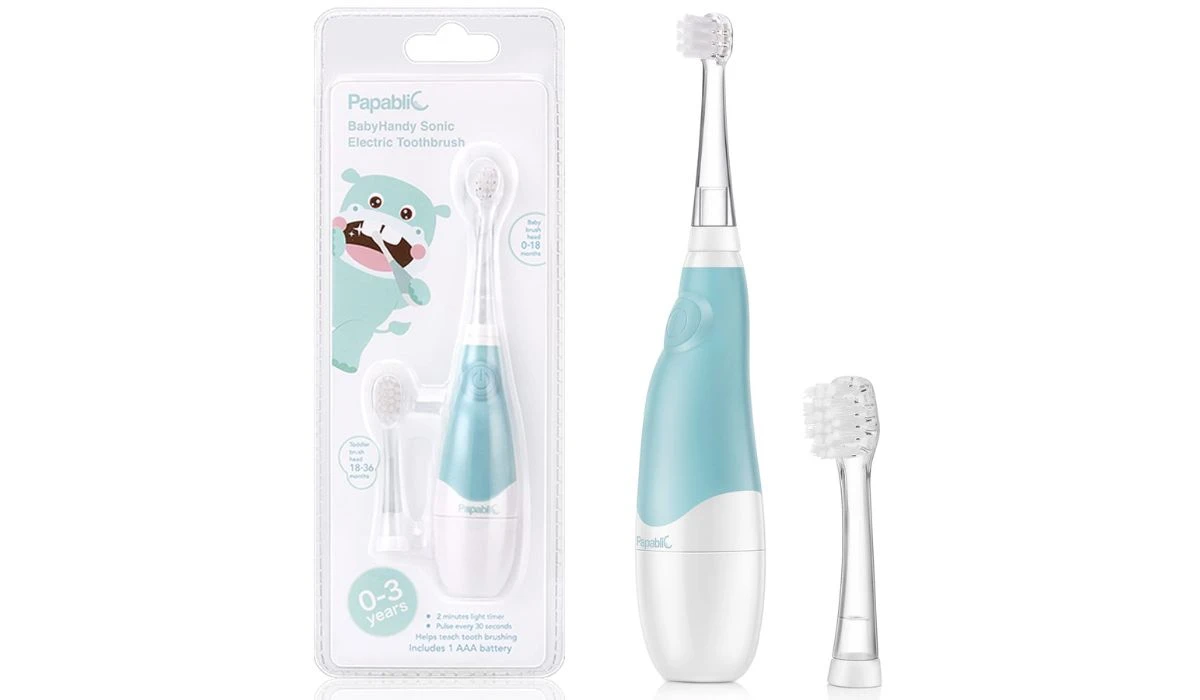
5. Baby electric toothbrushes
Yep, they exist!
Just make sure the option you choose is designed for babies and isn’t too powerful.
Adult electric toothbrushes can damage baby’s gums and teeth with their hard bristles and power.
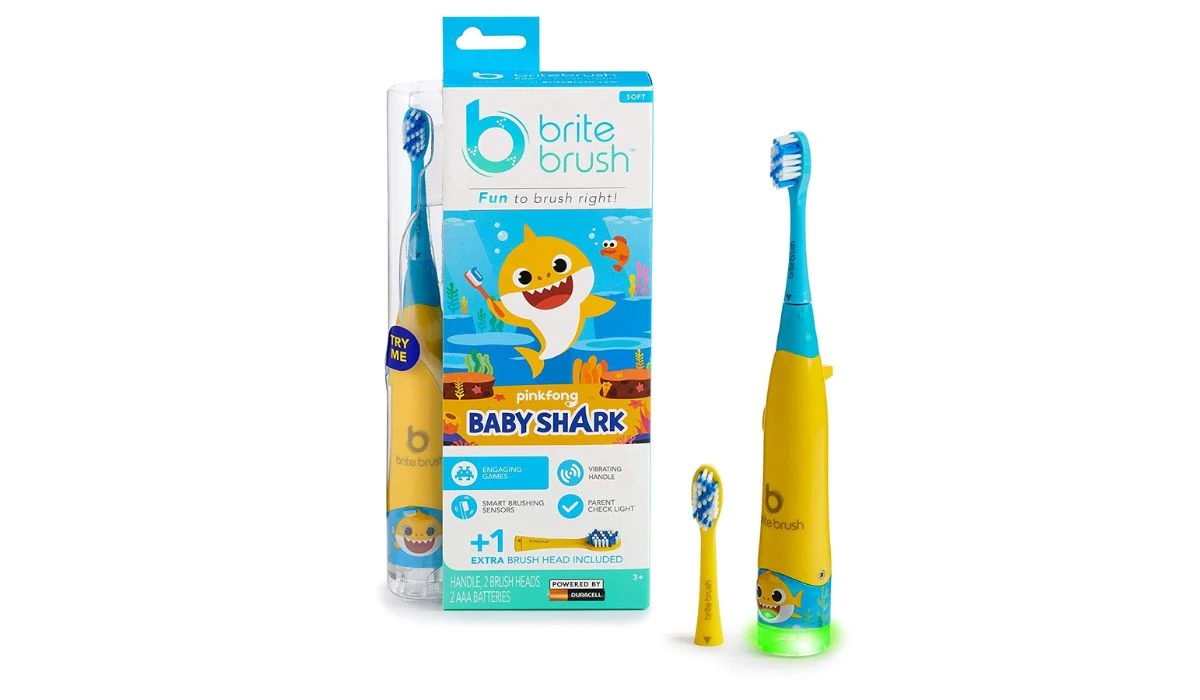
6. Baby shark toothbrushes
Yep, these are [toothbrushes that play the song Baby Shark while they brush.
How’s that for a motivator?
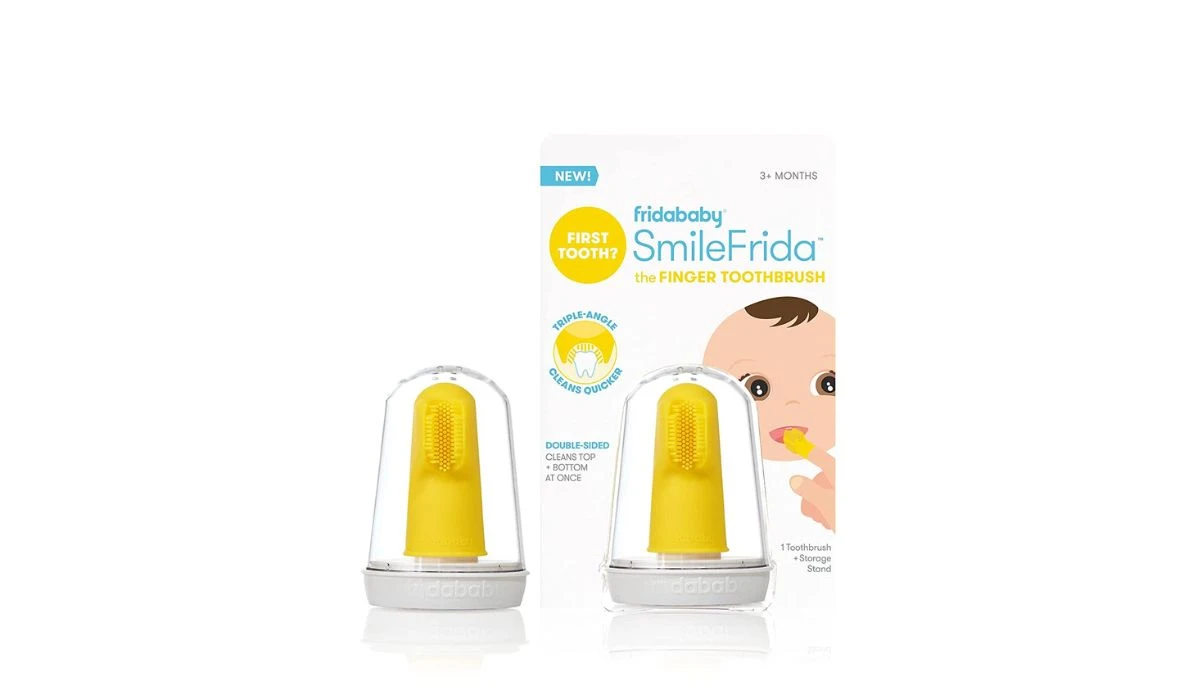
7. Finger toothbrushes
If you feel like a more direct approach, you could try a baby finger toothbrush like this one from FridaBaby.
A finger brush fits on the end of your finger.
You can use it to rub your baby’s gums and teeth gently.
Some parents prefer these because they feel they have more control over the teeth-cleaning process.
Are finger toothbrushes good for babies?
Finger toothbrushes are great for babies because you can use them even before their teething begins.
These silicone-bristled brushes help with oral healthcare and can relieve some of the symptoms of teething.
When your baby has more than just the front teeth, it’s a good idea to get a handheld toothbrush.
How to brush babies’ teeth
The technique recommended by experts is to brush their teeth in small circles.
Make sure you cover all the surfaces.
And try to get your child to spit the toothpaste out afterward.
You don’t need to get your little one to rinse afterward — this washes the fluoride off their teeth.
How often do you brush baby’s teeth?
At least twice a day — in the morning and before bedtime.
Baby toothbrush: the final word
There are many options when it comes to baby toothbrushes.
The most important thing to remember is that the best baby toothbrush is the one that’s used.
The sooner you get the oral care routine going, the better.
All the best, mama!

